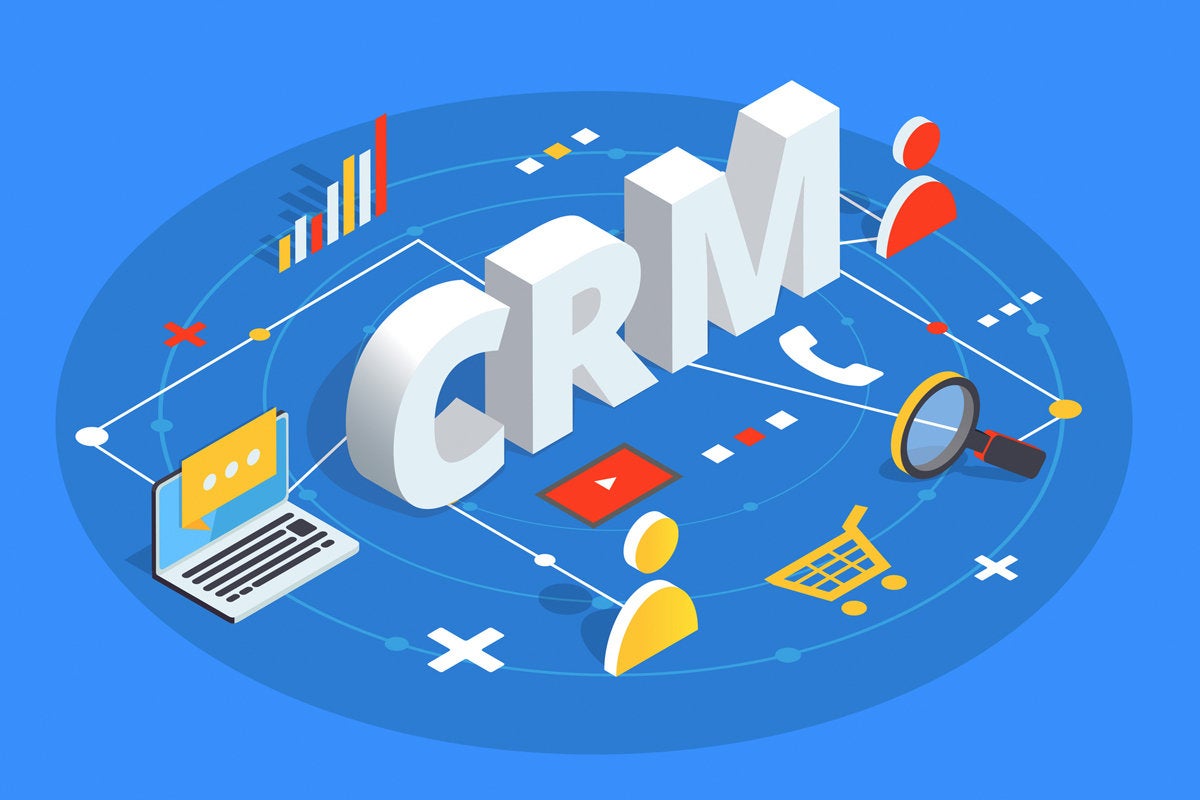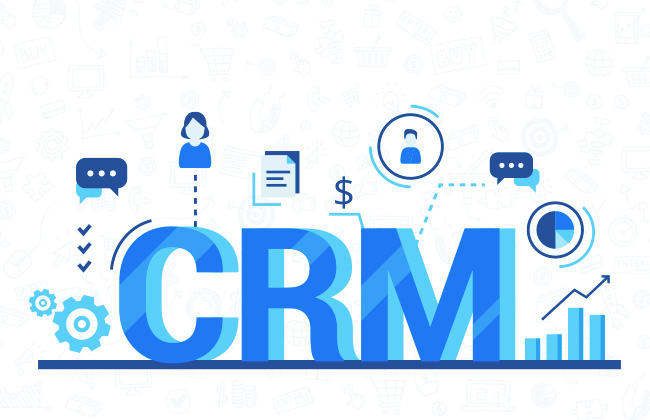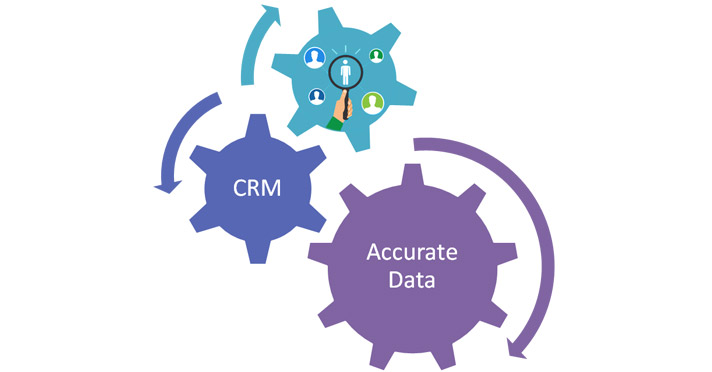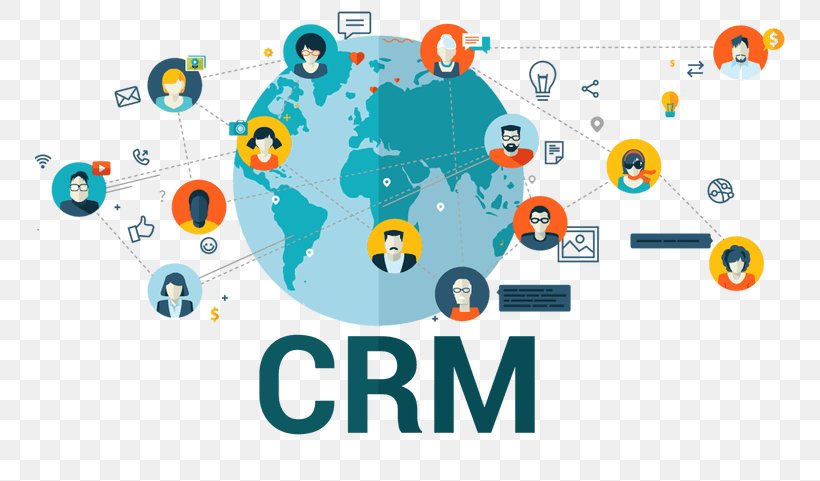
Customer relationship data can make a huge difference in the performance of a company. The more you know about your consumers, the better you’ll serve them. So having a proper CRM database and doing CRM Data Maintenance efficiently is the key to success in B2B marketing. The organization is defined by the quality of the CRM data they curate. Marketing teams need to segment contacts, personalize their messaging and create targeted campaigns. The sales team needs accurate data to address your consumer’s issues, and your customer support team can use numbers for context in customer conversations. Forecasting by finance teams depends on CRM. Each stage of decision-making in an organization depends on CRM.
Companies would do well to focus on data maintenance. Inaccurate data in their customer database can affect their day-to-day working and bad news for marketing teams. How would you address your customer’s concerns, if you did not know who they are, and what their priorities are? Accurate, reliable data is the need of the hour. Gone are the days when companies relied on manual work to iron out data issues. This is time-consuming and frankly boring for manpower. Why use your employees to export data, or use Microsoft Excel with all its complicated formulas, to only revert to your CRM! Learn how CRM Data Maintenance affects B2B marketing, so you can keep your system updated and error-free.
Why is CRM Data Maintenance So Important?

Poorly-managed data impacts the entire organization, having an especially harmful effect on sales and marketing. In such a scenario. The data that the marketing team gets is instrumental in ensuring the success of its marketing campaigns. Below are the reasons why CRM Data Management is so important.
Segmentation
Basic marketing activity is the starting point of all marketing campaigns. The most important part of any marketer’s job is segmentation. The process of analyzing long customer lists and breaking them down so as to communicate with each segment is important. Each audience has its own needs. List down the people you are speaking to, and break them up into smaller and manageable groups that resonate with particular opinions. Poorly segmented audiences lead to data inconsistencies that could hamper the effectiveness of a marketing campaign. Any effective campaign speaks to multiple levels of management, so communicate accordingly.
Personalization
This cannot be stressed enough. Personalized messages are important for successful campaigns, and if your CRM data is consistent and high-quality, your messaging can be highly personalized and therefore, effective. Simple data oversights, such as an extra letter in a name directory or a capitalization out of order can cause a disruption, and impact the whole data mining system. Avoid inconsistent associations, and consequential deal derailments by ensuring your CRM is always up to date.
Customer Experience
Customer journey is very important because the less specific your marketing message is, the more your brand might suffer. Customer data needs to be segmented effectively so relevant messaging is delivered. Data quality makes a big difference to customer satisfaction. Without reliable data, companies would have no way of keeping their customers happy.
How Do You Practice Effective CRM Data Maintenance?

Constantly auditing your CRM knowledge, finding problem areas, and fixing them should be the priority of your CRM Data Maintenance policy. Below are the focus areas which must be paid attention to.
Data Quality in CRM Data Maintenance
Maintaining consistent data quality ensures that knowledge is accessible, related, and constant. Your knowledge standard impacts your complete group. Apart from the information being correct, the right people in your group should be able to access it whenever required. The knowledge that is kept in individual silos slows the group down. Data consistency demands that knowledge be standardized and formatted in your database. For example, cell phone numbers should be segmented accordingly, job titles must be standardized and names of contacts should be capitalized appropriately. If you maintain consistency, you can club knowledge in easy-to-remember methods. Finally, your knowledge and data must be related to the field you are in. If you have thousands of GB of information, it would be useless if it isn’t about your target market. Regular knowledge upkeep processes like knowledge cleaning ensure high quality of data.
Cleansing Data
It is imperative to omit inaccurate, poorly formatted, duplicate, or unfinished data in your CRM. A very common example is first name and last name capitalization issues, for instance, Alex vs Alex. Addresses as well, need to be in a standard format, like the telephone numbers (65578498 vs 655-784-98). Remove incorrect or fake data, fix the special character, and outlying issues. Data cleansing isn’t easy. It takes time and involves breaking up your database to assign tasks to various team members, who load the data into Excel, further using VLOOKUP and similar formulas to identify and skip anomalies, before reimporting that data back into the CRM. It takes good Excel skills to get this done.
Removing Data Duplications
If you check your own smartphone, you might find multiple entries for one contact. Imagine how much duplicate data companies have to deal with. Duplicate contact records might occur due to manual entry or backend CRM, data imports, or software integrations. Posing a big inconvenience to the marketing team, duplicate data leads to spikes in campaign costs and productivity losses. The time that could be spent productively on other aspects of the project is instead wasted in ironing out data issues. Combing through records to find the right or most accurate record is a waste, and data duplication requires marketing teams to remove the copies before new campaign launches. Finally, the customer experience also gets jeopardized because the customers get mixed and redundant messages, while you, on the other hand, are unable to understand their needs clearly.
Data Purging in CRM Data Maintenance
As the name suggests, this involves removing useless outdated, redundant, and low-quality data that fills up important database space and hampers company reputation among other things. You know your data needs a thorough cleanup when you have undelivered mails, fake or outdated prospects, poor customer interaction records, half-baked contact data, passive contacts, duplicate contacts, and more. The usability of your CRM data depends on how well you purge it. Keeping away clutter helps to cap data storage costs and CRM fees, and saves your team precious time. Expect better email delivery, open rates, and sender reputation with a successful database purge.
Data Monitoring and KPIs
Identifying key issues is instrumental in fixing them, w.r.t to your CRM database. There are various database issues you’re likely to run into and you’d do well to understand what they are so you can prioritize fixing the most important ones. You can generate reports manually by monitoring your KPIs, but only if you’re prepared to run reports or use Excel for analysis. Having a clear KPI is important to track your progress, and to keep a check on your customer data as a whole.
Final Thoughts

In conclusion, your CRM is constantly being updated with new data, and that brings in a whole new range of errors and inaccuracies. Audit it frequently so you can be armed with the correct customer information when crafting your B2B marketing campaigns. Understanding your customer is key to cracking a successful campaign, and in that regard, your CRM Database can tell you everything about your customer you need to know. Read our blog on the best digital marketing tools of 2021 to get an idea of what you can use to ensure maximum market visibility online and high customer engagement.
